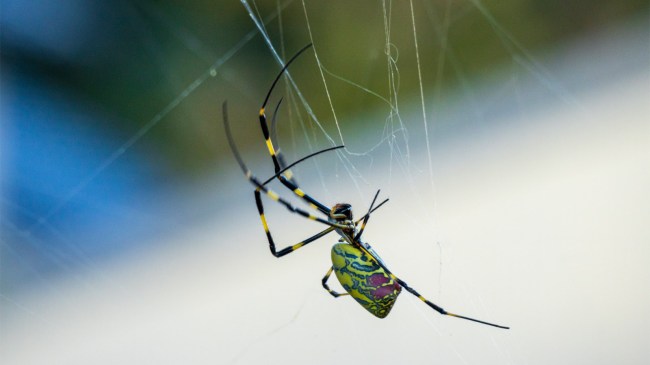Getty Image
Scientists recently announced that they believe invasive Giant Joro spiders will soon be spreading across the East Coast before possibly covering the entire country.
Joro spiders first appeared near Atlanta, Georgia in the United States around 2013 when they were reportedly brought into the country inside a shipping container by accident. Up until then they mostly appeared only in Japan, Korea, Taiwan and China.
They have since spread across Georgia, South Carolina, North Carolina, Alabama, Tennessee, Maryland, West Virginia and Oklahoma.
Now, researchers from the University of Georgia believe these Giant Joro spiders will be spreading even further and begin taking over cities and other urban areas across the East Coast.
What makes this so odd from a scientific standpoint is that urban areas with busy roads are “notably stressful environments” for spiders and other animals, the researchers wrote in a press release.
That, however, doesn’t seem to stop Joro spiders who build their webs “between power lines, on top of stoplights and even above the pumps at local gas stations.”
The researchers found that while Joro spiders near busier roads are somewhat less likely to attack simulated prey, the spiders don’t seem to be hurting for it and clock in at about the same weight as their counterparts in less busy locations. That suggests the species can successfully compensate for its human-dominated landscape.
“If you’re a spider, you rely on vibrations to do your job and catch bugs,” said Andy Davis, corresponding author of the study and a research scientist in UGA’s Odum School of Ecology. “But these Joro webs are everywhere in the fall, including right next to busy roads, and the spiders seem to be able to make a living there. For some reason, these spiders seem urban tolerant.”
Female Joro spiders (Trichonephila clavata) can be as big as 3 inches across and their webs, where they will lay between 400 to 1500 eggs, can reach several meters in length.
“I don’t know how happy people are going to be about it, but I think the spiders are here to stay,” study co-author Alexa Schultz said, adding that they may also appear in places “where you wouldn’t imagine a spider to be.”
On the plus side for humans, they are actually quite shy. They won’t bite unless they feel the need to protect themselves, and if they do bite, they are unlikely to break the skin.

